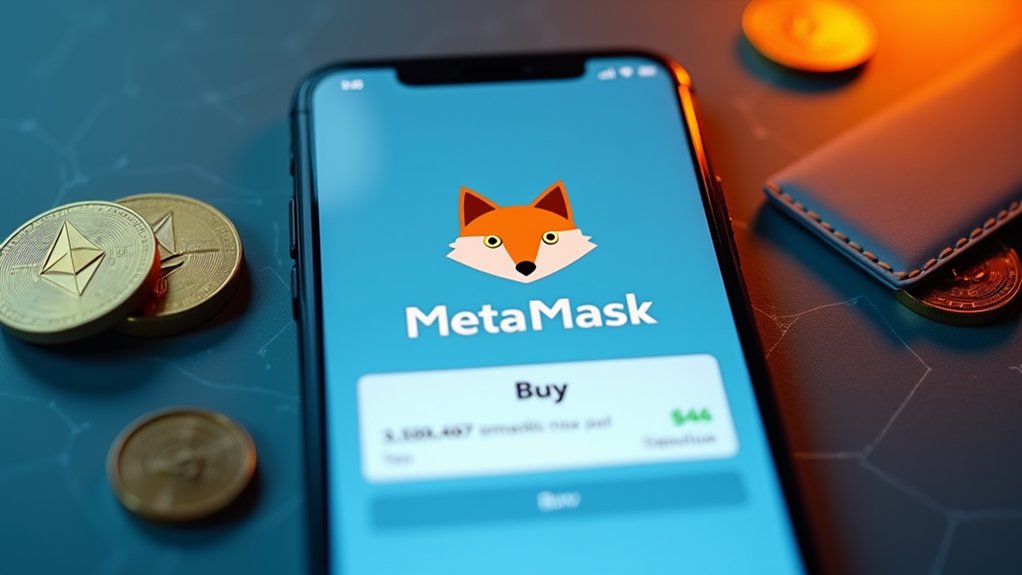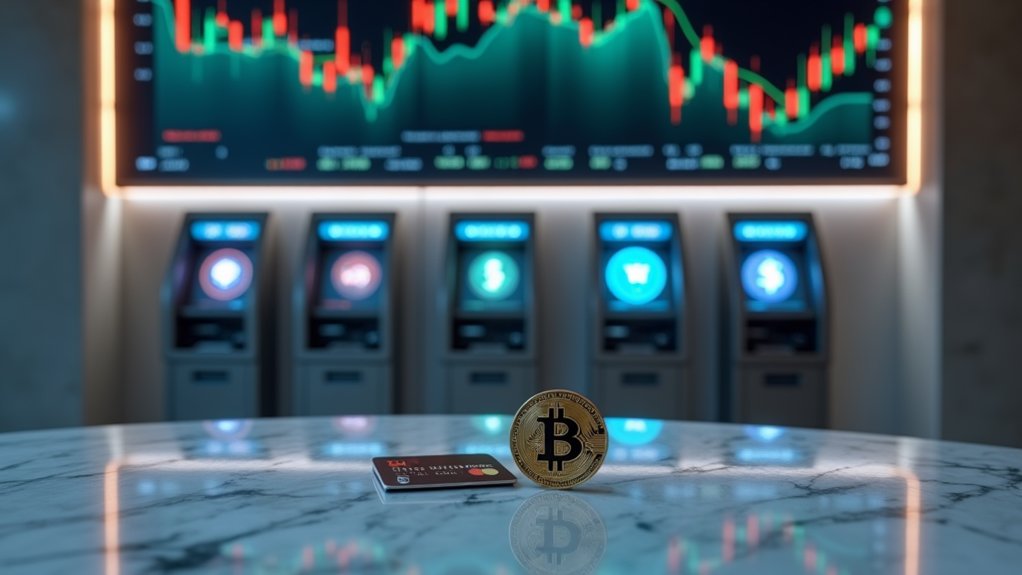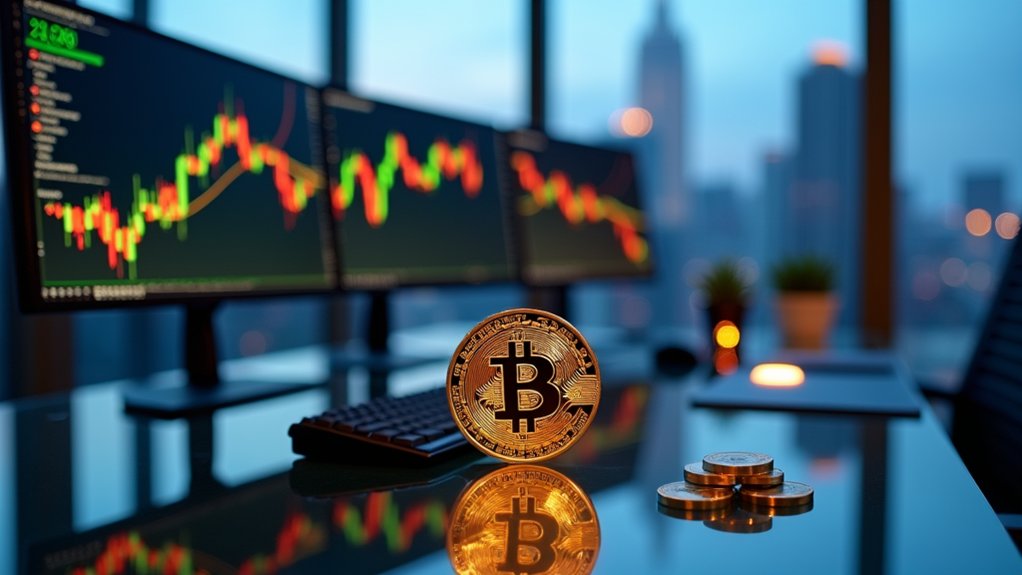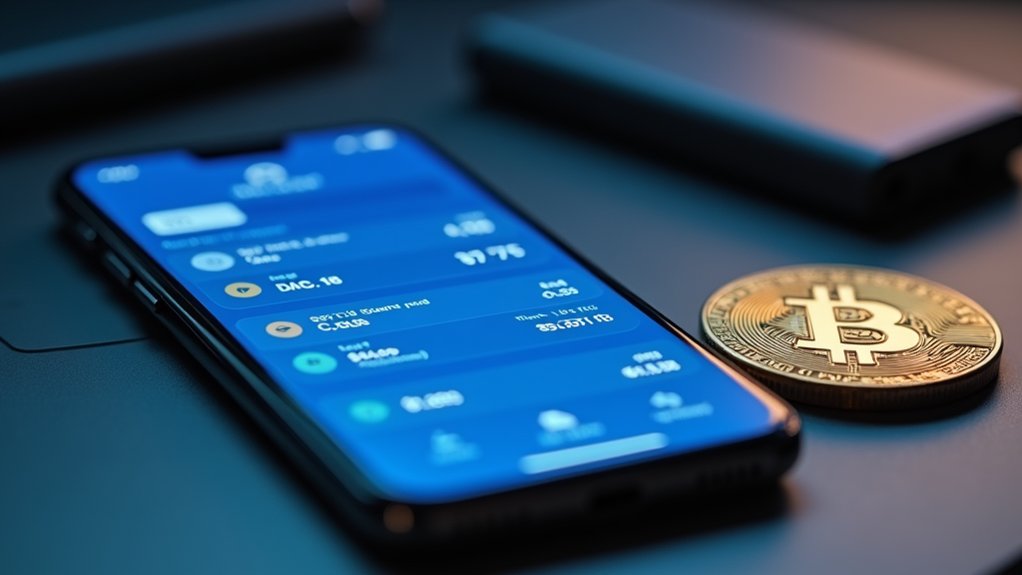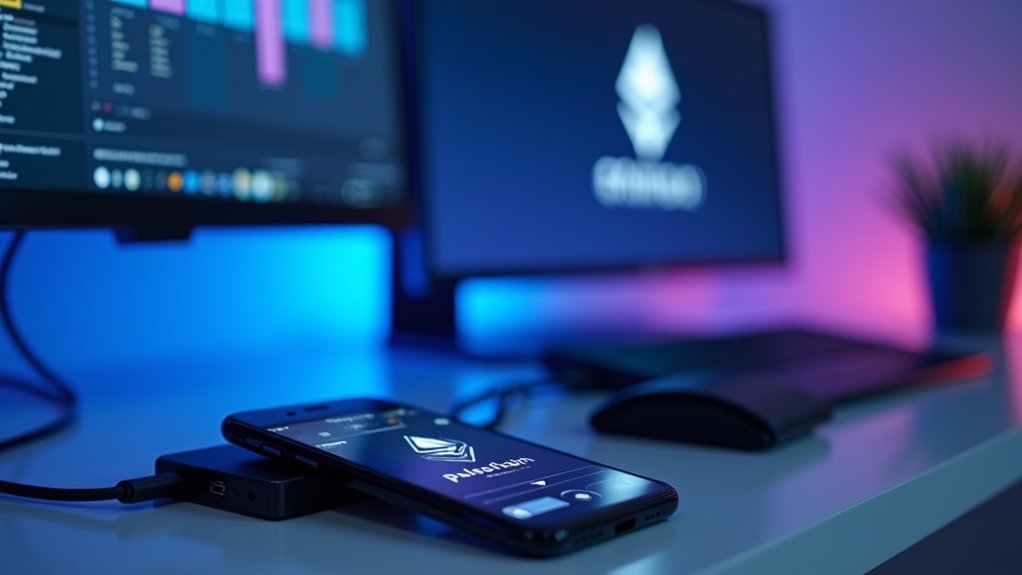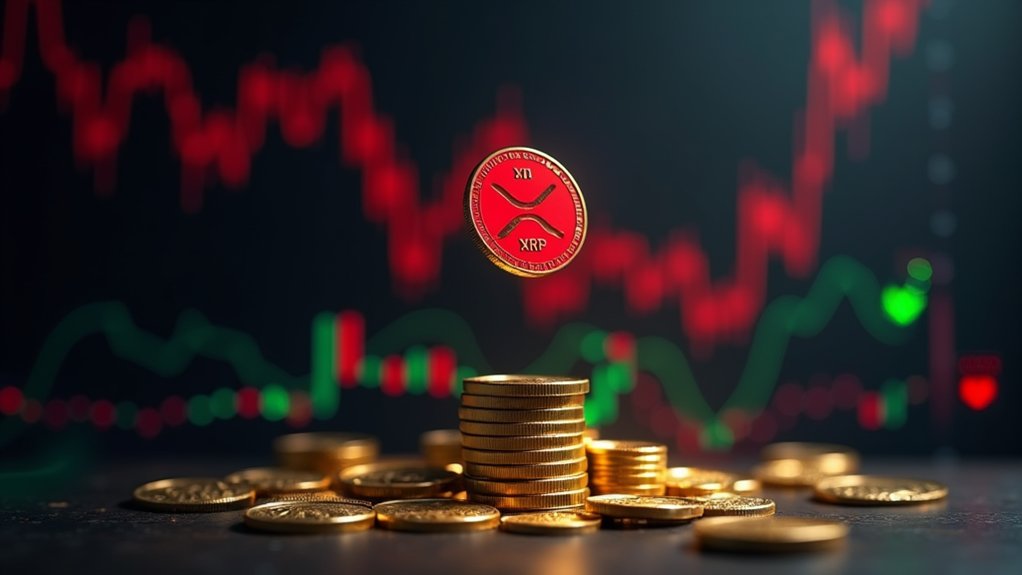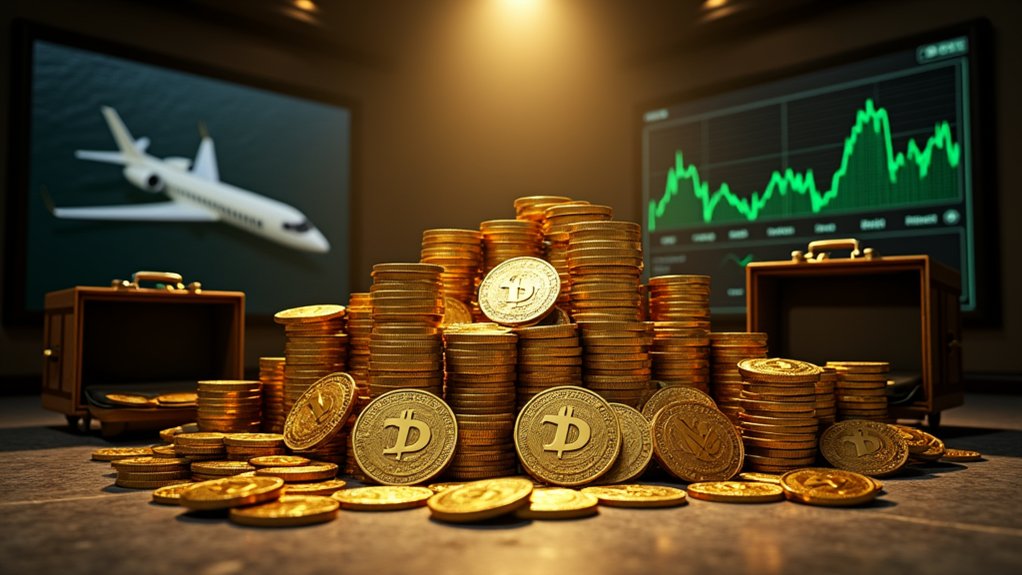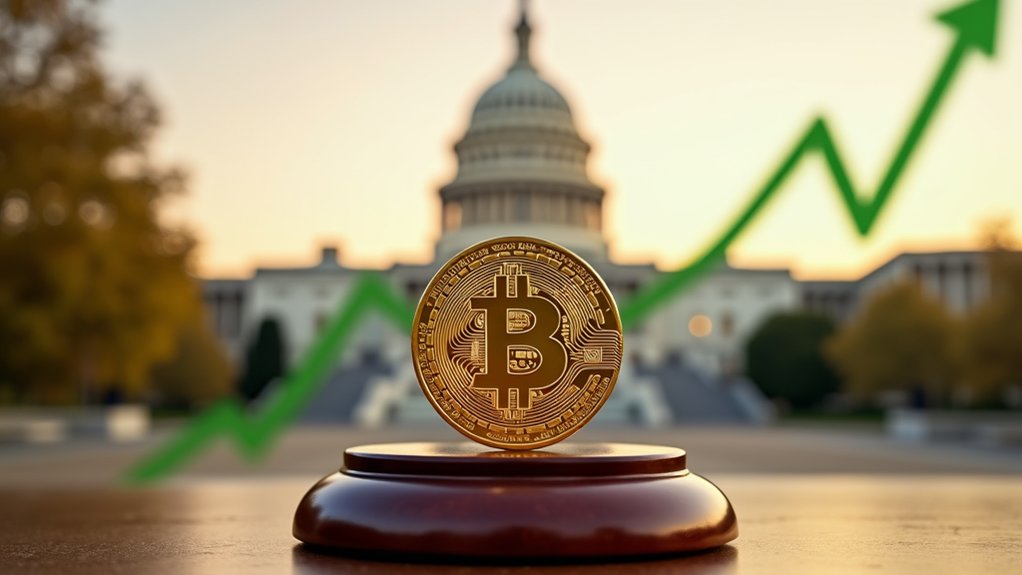To buy cryptocurrency on MetaMask, users must access the Portfolio website or mobile app's buy feature, select their region and currency, then choose from available third-party payment processors. After selecting a provider, they input their desired purchase amount, review fees and exchange rates, complete any required KYC verification procedures, and finalize the transaction. MetaMask supports various payment methods including credit/debit cards, PayPal, and bank transfers, with asset availability varying by jurisdiction. The following instructions provide thorough details for maneuvering this process effectively.
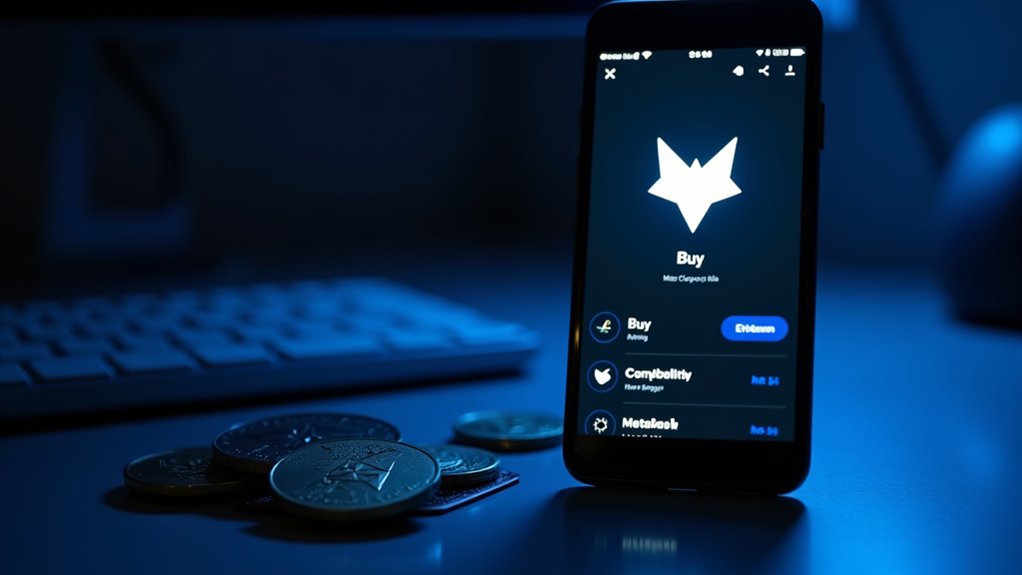
Navigating the cryptocurrency landscape requires dependable tools, and MetaMask stands as one of the most widely-adopted wallet solutions for accessing Ethereum-based assets and decentralized applications. This browser extension and mobile application primarily functions with Ethereum and ERC-20 tokens, including popular stablecoins like USDC, USDT, and DAI, which investors frequently utilize for participation in token sales or interaction with decentralized applications.
MetaMask offers essential infrastructure for cryptocurrency users navigating Ethereum's ecosystem and the growing world of decentralized finance.
The platform's compatibility extends to various EVM-compatible blockchains, including BNB Smart Chain and Polygon, through manual network configuration procedures.
The acquisition process begins by accessing either the MetaMask Portfolio website or utilizing the dedicated buy feature within the mobile application. Users must first select their geographical region and preferred currency, which filters available payment processors and transaction methods based on regulatory requirements and regional partnerships with on-ramp service providers. The platform offers multiple payment methods including debit/credit cards, PayPal, and bank transfers depending on the region.
This localization element proves essential, as cryptocurrency availability varies greatly across jurisdictions due to differing regulatory frameworks and financial infrastructure.
MetaMask does not directly sell cryptocurrency but instead connects users to third-party providers that facilitate the transaction process. After selecting an appropriate provider, users typically input the desired purchase amount, review applicable fees and exchange rates, and proceed through standard know-your-customer verification procedures where required by regulation.
The platform utilizes incorporation with decentralized exchanges rather than operating as a direct purchase mechanism, allowing users to swap between various tokens after acquiring their initial assets. Users can adjust Gas fees manually based on how quickly they need their transactions processed on the Ethereum network.
For users seeking to diversify beyond Ethereum-based assets, MetaMask's manual network addition capability provides access to alternative blockchain ecosystems, though the primary focus remains on Ethereum and its token standard. While MetaMask offers convenience for trading, transferring purchased cryptocurrency to a personal wallet can provide enhanced security for long-term storage.
The verification and purchase completion process typically requires several minutes to several hours, depending on network congestion, payment method selected, and the efficiency of the chosen provider's processing systems.
Upon completion, assets appear directly in the user's MetaMask wallet, ready for storage, further transactions, or utilization within the expanding ecosystem of decentralized finance applications.
Frequently Asked Questions
What Are the Withdrawal Fees for Different Cryptocurrencies on Metamask?
MetaMask itself does not charge withdrawal fees, though users must pay blockchain-specific gas fees that vary based on network congestion.
When converting crypto via MetaMask Swaps, a 0.875% service fee applies alongside gas fees.
Third-party off-ramp providers typically charge 5-8% in transaction fees, since demonstrated by the 0.00399 ETH fee (~8%) on a 0.05 ETH withdrawal through MoonPay, in addition to the 0.00021 ETH gas fee.
Can I Buy Crypto Using My Credit Card Internationally?
Credit card purchases for cryptocurrency are supported internationally through third-party services integrated with various platforms.
Providers like MoonPay, Ramp Network, and MEXC facilitate transactions across more than 150 countries, though fees are relatively high, ranging from 1% for bank transfers to 4.5% for card payments.
While convenient and fast (approximately 5 minutes for completion), these transactions require KYC verification and may incur additional foreign transaction fees depending on the card issuer.
How Do I Recover Funds Sent to the Wrong Address?
Recovering funds sent to an incorrect address is typically impossible due to blockchain's immutable nature.
Users should first verify transaction details through block explorers like Etherscan to confirm the destination. If the recipient is identifiable, for instance, an exchange, contacting them may yield results, though this offers no guarantees.
Cross-chain bridges might resolve network incompatibility issues, while professional recovery services exist but charge fees without assured success.
Which Wallets Can I Transfer Metamask Purchases To?
MetaMask funds can be transferred to multiple wallet categories: hardware wallets (Ledger Nano S Plus/X/Stax, Trezor Model One/T, Keystone Pro/Essential, Lattice 1, NGRAVE ZERO), centralized exchanges (Coinbase, Binance, Kraken), and other software wallets like Trust Wallet.
When transferring to exchanges, users must complete KYC procedures and potentially pay network fees depending on the blockchain.
Compatibility with specific wallets may vary regionally due to regulatory requirements governing cryptocurrency transactions.
Is KYC Verification Required for All Purchase Methods?
KYC verification requirements vary in accordance with the purchase method employed and the third-party provider selected.
While major payment methods like credit cards, debit cards, and bank transfers typically mandate full identity verification to comply with regulatory standards, some providers may exempt microtransactions from stringent KYC procedures.
Regional constraints further impact verification requirements, with certain jurisdictions imposing additional checks for specific tokens or networks, particularly wrapped assets that involve centralized custody arrangements.
